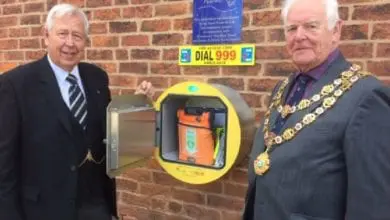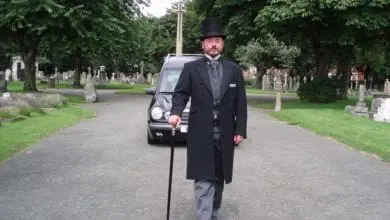Funeral debt has risen to £160m

The Royal London National Funeral Cost Index 2017 has revealed that the average cost of a funeral has increased to £3,784.
Funeral debt has also risen to £160 million, with one in six struggling with funeral costs.
People are taking on an average debt of £1,680.
Amongst those who struggled, one in four said they borrowed money from family and friends (26 percent) and a further one in four (23 percent) went into debt by taking out a loan or going into their overdraft to pay funeral costs. A record number of people were also selling their possessions to repay funeral debt, with one in ten (10 percent) of those struggling with funeral payments taking this approach.
The research also found lower cost funeral options such as direct cremations – a no frills funeral – continue to be popular.
Of all the cremation funerals held, 10 percent did not include a ceremony or service.
However, those who choose to have a ceremony or service saw an increase in costs, with the amount spent on discretionary funeral items such as catering and venue hire rising.
Commenting on the findings, Royal London’s funeral cost expert, Louise Eaton-Terry, said: “The decline in funeral inflation we identified last year was a temporary respite, as our latest research shows funeral costs are on the rise again. With thousands of bereaved people struggling to pay funeral costs and taking on nearly £1,700 in debt to ensure their loved one has a decent send-off, it is clear that Government action to tackle funeral poverty is long overdue.”
“The Scottish Government is leading the way with its commitment to providing help and guidance on funeral costs for consumers. We want Westminster to follow Scotland’s lead and do more to address the issue of rising funeral debt.”
Institute of Cemetery & Crematorium Management’s chief executive, Tim Morris, said: “Increases in funeral costs are evident by the increases in Local authority arranged Public Health Funerals, number of new breed funeral directors providing a direct option and crowd-funding appeals on social media.
“The Scottish Government’s Ten Point Plan designed to alleviate funeral poverty, the Department of Work & Pensions consultation on reform of the Social Fund and the introduction of an Inspector of Funeral Directors in Scotland indicate that a crisis has been identified.
“Unfortunately only the Scottish Government has acted in respect of the shortage of burial space crisis that affects circa 25% of the population. This additional driver of funeral poverty requires urgent attention in England & Wales.”
Heather Kennedy, Fair Funerals campaigns manager says: “We welcome today’s report from Royal London which lays bare why so many grieving people are struggling with funeral costs. Royal London are entirely right to highlight the growing gulf between the Scottish Government and Westminster in their response to funeral poverty. Whilst Scotland have taken bold action to tackle funeral poverty and create a proper safety net for grieving people, the disappointing response from Westminster is letting grieving people down.
“As Royal London point out, the current review of the Social Fund Funeral Payment (the funeral fund) doesn’t address the fundamental problem with the fund; that its value has shrunk dramatically, to the point where it now covers less than half a funeral. As the report explains, the gap between the funeral fund and funeral costs continues to widen.
“Through our work with grieving people on low incomes, we see the distress and financial hardship this creates. It leaves grieving families unable to raise the money to lay their loved one to rest. It leaves others shouldering up crippling, unaffordable debts for years to come. It should be a matter for national concern that the value of funeral poverty has increased from £150million to £160million in one year.
“The Government is spending just £38.6 million on the funeral fund for people who can’t afford a funeral, the lowest figure for ten years. Worryingly, whilst the same number of people are applying for help every year, the awards being made by the Department of Work and Pensions (DWP) are dropping significantly (27,000 awards were made in 2017 as compared to 41,000 in 2007). We would like the DWP to explain the reason for this decline in expenditure and awards.”







